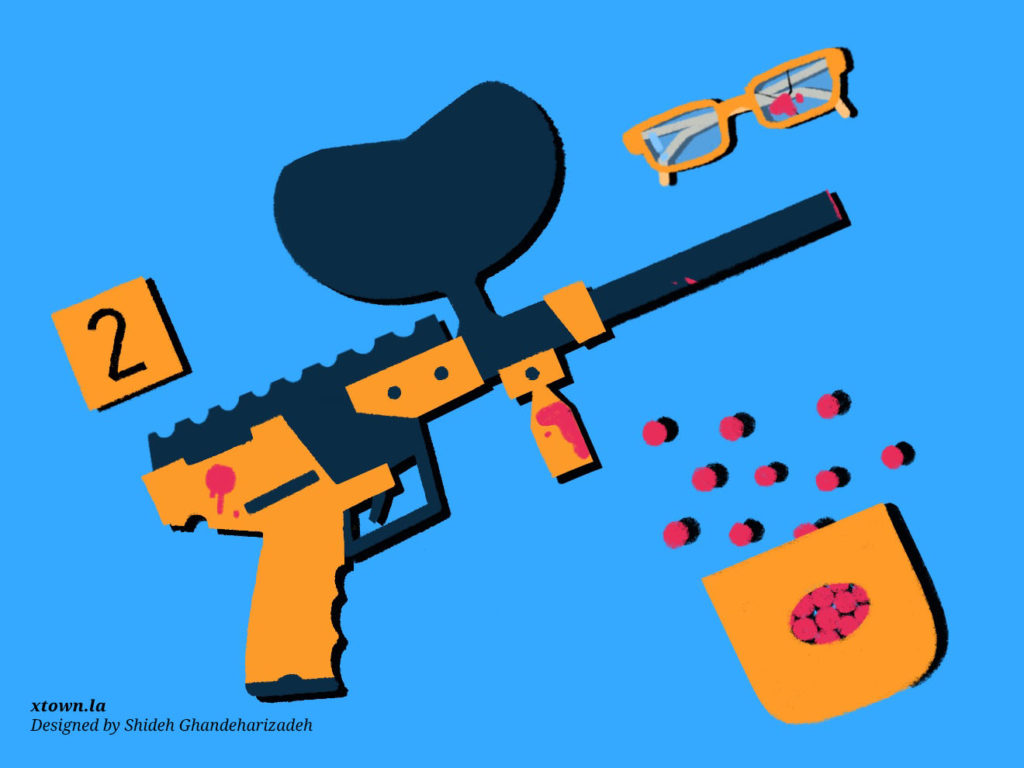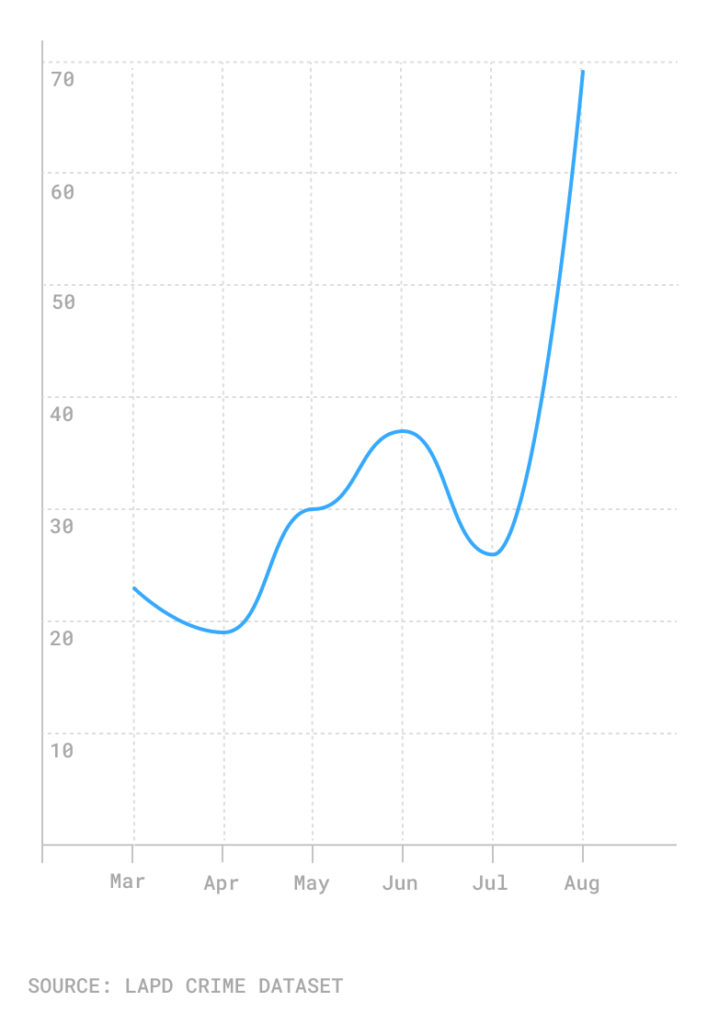Why does LA suddenly have a spike in paintball attacks?

Los Angeles last month saw a sudden spike in paintball attacks. Yes, paintball attacks.
Many of these incidents took place in South Los Angeles. The Los Angeles Police Department on Sept. 2 said that there have been 80 paintball shootings in the city this year, with 75 of them occurring in South Los Angeles. An analysis of department data revealed that there were 69 incidents in August that used the LAPD code that applies to paintball guns, air rifles and BB guns. It was the highest monthly tally in several years and marked a 165% increase over the 26 incidents recorded the previous month.
Paintball, air rifle and BB gun attacks by month (March-August 2020)

Blame coronavirus
Why the sudden increase? As with just about everything else, blame COVID-19. Police suspect that the increase in incidents may stem from avid paintball players whose regular recreational paintball facilities have been closed due to the spread of COVID-19. A department statement also said that some individuals are filming their attacks and sharing the footage on social media platforms.
The LAPD has arrested a handful of people in connection with recent assaults, according to Capt. Scot Williams. Officers are seeking to raise awareness of the situation in the effort to prevent additional incidents.
“We’re hoping our message gets out to the community so people who engage in this sort of activity stop,” Williams said.
This is not the first time that Los Angeles has seen a spate of paintball attacks. In June 2019, 28 people were shot by paintball guns in the city, according to the LAPD. There was also a rash of paintball shootings in 2017.
However, Williams said the situation has worsened recently. In the space of a few weeks, he said, the LAPD saw dozens of paintball shootings, with most of those happening in the areas patrolled by the LAPD’s 77th Street and Southeast divisions.
Strangers under fire
Most of the attacks were perpetrated on unsuspecting victims by strangers. According to police reports, in one incident an unidentified individual exited a vehicle and fired shots at a pedestrian in the neighborhood of Florence. In another, a ride share driver was hit in Manchester Square (the reports used the classification for paintball guns, air rifles and BB guns, but both attacks took place amid the recent increase in paintball shootings).
Paintball pellets are more than children’s toys. About the size of a marble, they can travel at a speed of up to 300 feet per second, which is fast enough to cause welts and serious bruising. Normally, paintball players wear safety goggles and thick clothing to minimize the impact when hit, but that kind of protection is not in place in unprovoked summer street attacks.
In 2018, three people in Torrance attacked a 65-year-old man with paintball guns, causing an eye injury that left him hospitalized.
An added danger, Williams said, involves the suddenness of an attack. Many people’s first instinct is to believe a real firearm is being aimed at them, rather than a paintball gun. That, understandably, can cause someone to fear for their life.
“It does psychological harm to our victims,” Williams said. “They don’t always realize it’s a paintball gun.”
Williams also pointed to the potential of a dangerous situation if police respond to a call but are unable to determine whether or not an individual has a paintball gun or a real gun.
“My biggest fear is the potential harm that could come to a community if [an] officer [had] to make a split-second decision,” Williams said.
In the attempt to reduce the frequency of paintball attacks and keep the public alert, the LAPD has been handing out flyers in local parks and neighborhoods.
How we did it: We examined LAPD publicly available data on reported incidents of the weapons code 114 from Jan. 1, 2010 – Aug. 31, 2020. For neighborhood boundaries, we rely on the borders defined by the Los Angeles Times. Learn more about our data here.
In making our calculations, we rely on the data the LAPD makes publicly available. On occasion, LAPD may update past collision reports with new information, or recategorize past reports. Those revised reports do not always automatically become part of the public database.
Want to know how your neighborhood fares? Or simply just interested in our data? Email us at askus@xtown.la.






